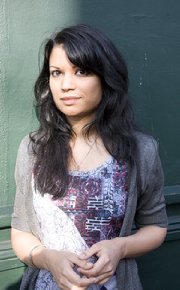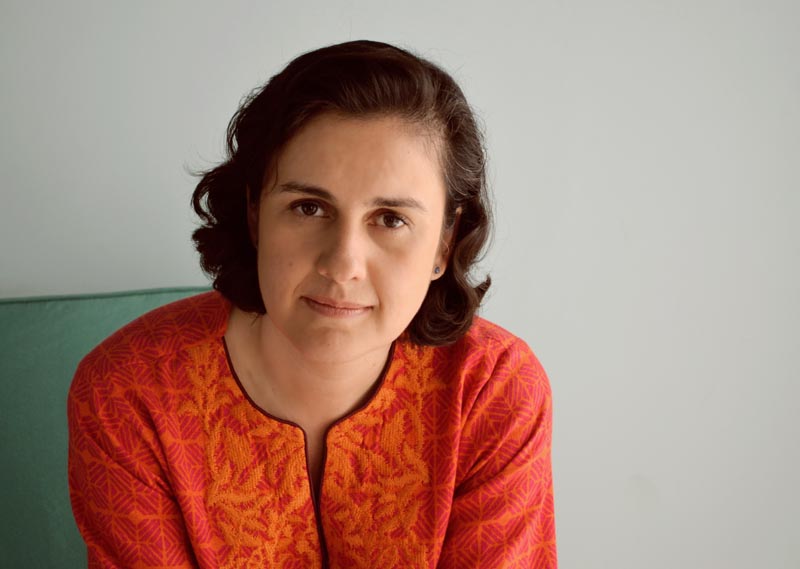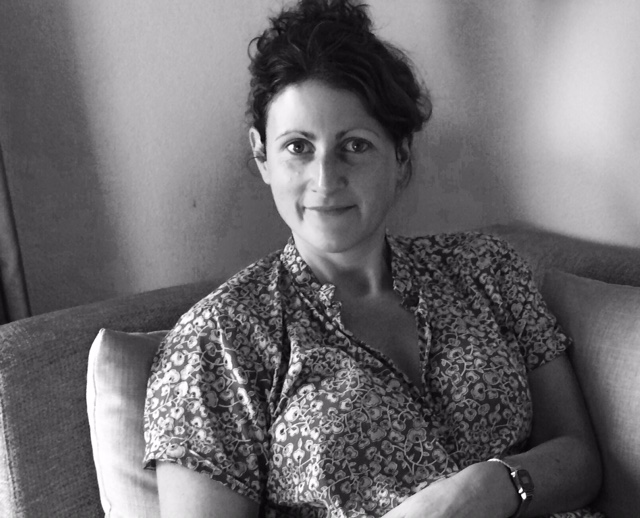
Q. Tell us a little bit more about your second novel, Another Country?
The novel opens when Leela, aged twenty-one, is in Paris at the end of the last millennium. It’s her first job after university, and begins a journey that the book follows, through her twenties in Paris, London, and then Bombay.
Q. In Saraswati Park there was quiet observation of the ordinary and the everyday and that can be said to be true of Another Country too. What draws you to detail and observation?
I feel that in my daily experience there are two parallel strains: one is more urgent and striving and concerned with the things I ought to get done, or am avoiding doing; the other is this sense of the beauty of the everyday, the quiet poetry of life that continues under all those concerns.
Q. What is it about the ordinary that you find interesting as a writer – and is it enough to inspire a full length novel? At what point does the writing of it matter more than the original inspiration?
For me the original inspiration is a few concerns or questions; a few images and places; a character. Not a plot outline. So the writing of it always comes to mean more than the inspiration, perhaps. I find the ordinary interesting because that is where we live most of our lives. Literary escapism is like junk food as far as I’m concerned; I enjoy it sometimes but wouldn’t like to live on it.
Q. What keeps you motivated to write?
I just like it.
Q. What was different in terms of the writing process, second time around? Were you in a different head space?
It’s probably always both different and the same. It’s different because your life is moving and isn’t static. It’s the same because you never know whether what you’re doing in thin air will amount to something someone might one day buy from a bookshop and read. It’s probably best to avoid thinking about that till much later in the process.
Q. With your debut being so successful (and deservedly so) were there ever times you hit a blank for fearing you might not live up to Saraswati Park?
It’s kind of you to say so, but I don’t think it was that sort of success. Also, I do hope that my writing is getting better, or at least staying closer to my changing but continuous sense of what I feel is authentic.
Q. I’m not sure I’m better acquainted with Leela, even after finishing the book. I wish I was. There’s a part of me that feels that she holds back all of the time, never revealing her true self or never feeling comfortable enough. Where did the inspiration for Leela come from? Is there a part of you in her?
Of course; there’s a part of me in every character. Her withholding is partly also a deliberate technique. I feel she is somewhat opaque to herself, and that that goes with this time in her life. She has her preoccupations but can’t see clearly what is happening till much later on. She isn’t aware of the patterns till the end of the book.
Q. Leela moves around – from Paris to London to Bombay and back to London again. I’m not sure she has a sense of belonging even though she does for the simple matter that she inhabits those spaces. Is it ever possible for any of us to feel like we truly belong or are we all foreigners no matter where we travel – home or abroad?
Things are different now, probably, but I do have some friends who’ve grown up and lived in the same town or city all their lives. I think their sense of belonging is quite different.
Q. Who do you like to read? What are your favourite books? And who would you say has had the most influence on your writing?
It’s hard to pick favourite books, or a short list of favourite books. When writing this novel I was reading, among other things, Françoise Sagan’s wonderful La Chamade, Flaubert’s Education Sentimentale, and Jean Rhys’s novels. I think Damon Galgut’s In A Strange Room also left an impression on me, and as he’d admit himself, he is strongly inspired by the work of Samuel Beckett, one of the writers to whom I also persistently return.
Q. Finally what advice would you give to any aspiring writers looking to polish up their first drafts?
Expect to write many drafts and don’t be too harsh on each one. Also, re-read the books you love many times as you rewrite.
Anjali Joseph was born in Bombay in 1978. She read English at Trinity College, Cambridge, and has taught English at the Sorbonne. More recently she has written for the Times of India in Bombay and been a Commissioning Editor for ELLE (India). She graduated from the MA in Creative Writing at the University of East Anglia with distinction in 2008. Her first novel, Saraswati Park, was published by 4th Estate in 2010. Discover more at http://www.anjalijoseph.com/
Another Country by Anjali Joseph is published by 4th Estate £12.99

